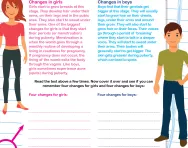TheSchoolRun.com closure date
As we informed you a few months ago, TheSchoolRun has had to make the difficult decision to close due to financial pressures and the company has now ceased trading. We had hoped to keep our content available through a partnership with another educational provider, but this provider has since withdrawn from the agreement.
As a result, we now have to permanently close TheSchoolRun.com. However, to give subscribers time to download any content they’d like to keep, we will keep the website open until 31st July 2025. After this date, the site will be taken down and there will be no further access to any resources. We strongly encourage you to download and save any resources you think you may want to use in the future.
In particular, we suggest downloading:
- Learning packs
- All the worksheets from the 11+ programme, if you are following this with your child
- Complete Learning Journey programmes (the packs below include all 40 worksheets for each programme)
You should already have received 16 primary school eBooks (worth £108.84) to download and keep. If you haven’t received these, please contact us at [email protected] before 31st July 2025, and we will send them to you.
We are very sorry that there is no way to continue offering access to resources and sincerely apologise for the inconvenience caused.
Are girls growing up too fast?

While most parents agree that little girls playing dress-up is totally acceptable, it is disconcerting to see toddlers hobbling in high heels, clad in clothes you’d normally see on a 20 year old on a night out. It’s something experts see as a sign that today’s children are growing up too quickly and becoming over-sexualised.


Boost your child's maths & English skills!
- Follow a weekly programme
- Maths & English resources
- Keeps your child's learning on track
High heels, make-up sets and grown-up style clothing, such as short skirts and knee-high boots are also directly marketed to kids. With so-called ‘role models’, including Miley Cyrus, Paris Hilton and even the Bratz Dolls endorsing the less-is-more school of dressing, it’s no wonder that young girls want to wear high heels and hot pants to emulate the stars they look up to. Plus, there’s no shortage of companies willing to take advantage of these young consumers.
Negative effects
A report by Girlguiding UK and the Mental Health Foundation in 2008 revealed the negative effects of growing up too young and early exposure to sexualised content in the media. The charities surveyed girls aged 10 to 14 and found that ‘premature sexualisation and pressure to grow up too quickly’ were two key negative influences on emotional and mental wellbeing. In particular, magazines that compel kids to wear adult clothes, lose weight and even have plastic surgery were cited as causing anxiety, stress and anger. Young girls also felt that the media reinforced the expectation among peers to look slimmer, older and more fashionable, which could lead to bullying if you didn’t conform to the media’s images of young women.
The survey showed that looking at pictures of models, pop stars and actresses made a fifth of the girls feel sad, two-fifths feel bad about themselves and over a tenth (12 percent) feel angry. Another recent survey by the Girl Guides recently discovered that 46% of girls aged 11 to 16 would consider cosmetic surgery and that girls started to dislike their appearance as early as 10 or 11.
Top tips
With more and more reports revealing just how unhappy young girls are with their looks, we share some tips for boosting your child’s self-esteem and protecting them from sexual and negative media content:
- Take a strong stance against clothes or make-up that you consider to be too old or too sexual for your child. Make rules about types of clothes that are and aren’t acceptable, and stick to them.
- Help kids to challenge and be critical of media images. Discuss any content you disagree with and present an alternative point of view.
- Provide them with a stable and supportive network of friends by taking them to a club such as Brownies or sports/dance activities.
- Monitor their internet usage perhaps by keeping the computer in the living room where you can see what websites they visit.
- Adhere to the age restrictions on DVDs and keep a close eye on what magazines they read.
- At the same time be open and honest about sex and relationships – see our guide to talking to kids about sex.








